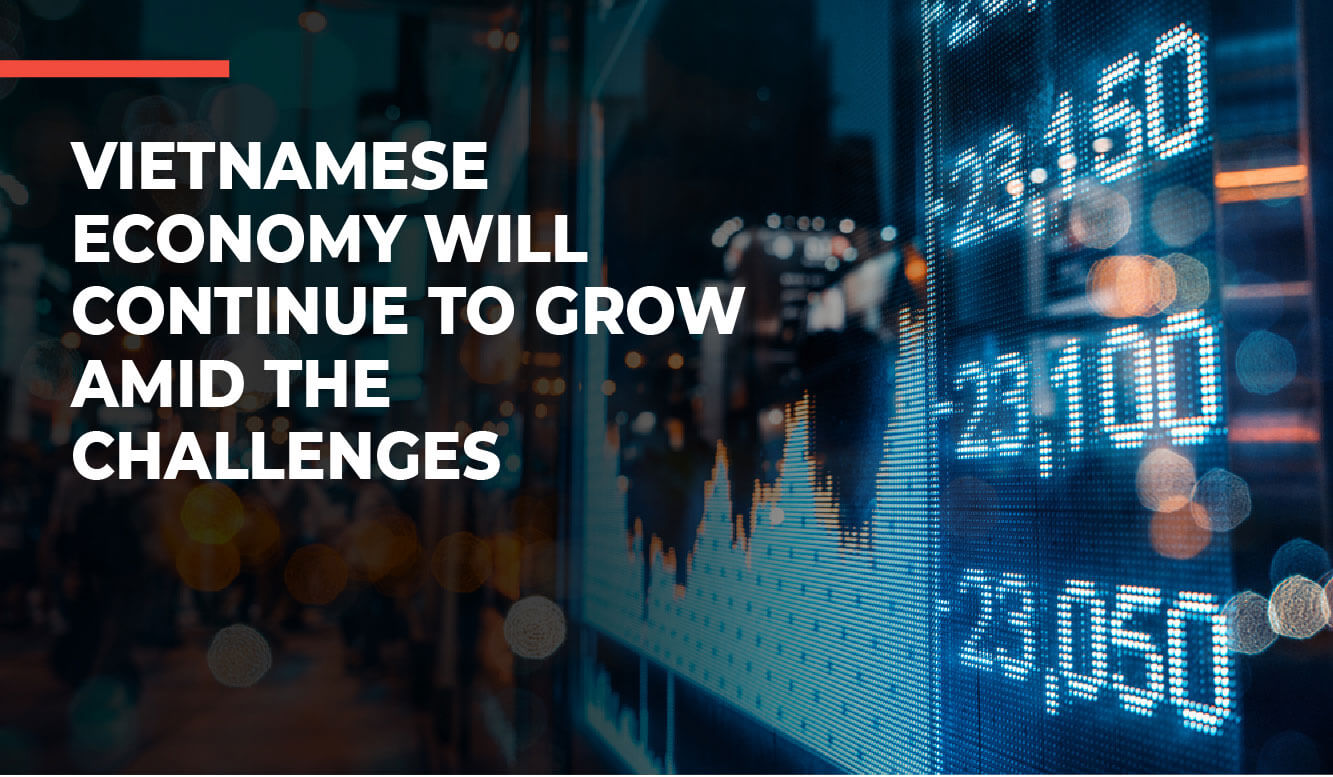
It is a domestic and international experts’ forecast about Vietnamese economy in the short and medium term at an Investment Conference recently held in Ho Chi Minh City.

Dr. Vo Tri Thanh, Former Deputy Director of the Central Economic Management and Research Institute, said that from a market perspective, Vietnam is currently ranked 8th in the list of the world’s best countries to invest, which has risen 15 places compared to 2018, according to the US News & World Report.

It is attributed to the fact that Vietnam is a large market when there are 16 FTAs bilateral and multilateral with the world’s economies. These FTAs, along with institutional reforms, will be a driving force for Vietnam to attract investment in sectors such as consumer support (retail distribution and tourism,…); production network support, value chains (industry support services and logistics,…); emerging sectors (green economy, multi-platform economy, e-commerce and fin-tech,…).
According to Mr. Thanh’s analysis, in addition to the above FTAs, the factors attracting investment also includes Vietnam’s important geopolitical/ geopolitical position in a dynamic region connected with global value chains (GVCs). The young population (considered “golden” until 2028) and labor costs are still relatively competitive. The domestic market is expanding, and the middle class is growing. Especially, given the China + 1 investment strategy, divestment coupled with the impact of the US – China trade war and commitments to stability, continued reform and integration are also favorable factors to help Vietnam become increasingly attractive to investors.
Assessing the opportunities to invest in Vietnam in the future from the narrower perspective of a financial expert, Ms. Stephanie Betant from HSBC also said that Vietnam’s bond market has recently followed many development steps such as extending the maturity from 1 – 3 years to 5 years. It is estimated that Vietnam’s bond market currently accounts for about 8.6% of GDP, equivalent to Philippines market while Vietnam should be equivalent to Thailand or Malaysia as its economic development is equivalent to these two countries.

Ms. Stephanie Betant also said that in the upcoming years, Vietnam’s bond market would thrive and attract international investors if it could address outstanding issues such as simplifying procedures and proving information transparency as transparency is a particularly important to the bond market, making investors decide whether to put money in or not.

Mr. Michael Paul Piro, CEO of Indochina Capital Corporation further analyzed the potentials for real estate development in Vietnam based on the economic growth factors. It is noteworthy that the potential for real estate development in the upcoming years will focus on the segment of hospitality, high-end housing, manufacturing and logistics markets given the development of infrastructure and low-cost carriers as well as the attraction of foreign investors. FDI growth along with retail sales has become a major factor driving the development of the current logistics infrastructure, with an average growth of 20% per annum over the past 5 years.

Regarding the future prospects, whether Vietnamese economy will be in recession or resurgence? Dr. Vo Tri Thanh said that due to the impact of the US – China trade war, it is clear that the world’s economy is slowing down. According to the IFC’s forecast, within the next 2 years, the world’s economy will still be in recession. Particularly, Vietnam is still a bright spot, without recession.
Mr. Thanh said that in the first three quarters of this year, the country’s economic growth was around 6.98%, but the Prime Minister recently told the National Assembly that the growth rate is only 6.8%. The reason is that the order index decreased, the orders in the textile and footwear sector also decreased and agriculture export was in difficulty. In fact, in the first 10 months of this year, Vietnam’s export growth was 8.5%, but mainly from export to the US with growth of around 25% while export to the European Union (EU) is not very positive. At the moment, the biggest hope is public investment that however has difficulty in the disbursement process. Since then, the forecast economic growth in 2020 is also about 6.6%.

“So at this rate, Vietnam is still a bright spot, not in recession. However, I think that in order for the economy to continue developing in the upcoming years, Vietnam must address three issues of stabilising economy, reducing social frustration and reforming institutions”, Mr. Vo Tri Thanh emphasized.
Mr. Thanh further stated that Vietnam still has some bottlenecks such as consistency, policy forecasts and implementation; the lack of high quality human resources (middle management & CEOs); infrastructure and pay rise pressure. In addition, the costs of adjusting the field lacks competitiveness, compliance costs for businesses (and the Government), vulnerable economy, macro instability from external shocks (price shock of basic commodities; capital movement and trade war).

In addition to the aforementioned issues, according to economics experts, the growth of Vietnamese economy also depends heavily on high finance from banks. Specifically, 60% of the financial system still relies on banks. Although NPL ratio has decreased significantly, NPLs of 4 – 5 groups that have almost lost their capital are now returning to small banks. The stock market has transitioned from excitement in 2017 to cautiousness since the end of 2018. Liquidity decreased significantly from VND 7 – 8 trillion/ day in 2017 to around VND 4 trillion/ day in the first 9 months of 2019. In terms of bond market, there are also many incomplete fundamentals.
Ms. Stephanie Betant said that to diversify capital flows, businesses can look to channels to mobilize bonds and stocks. In addition, in order for the bond market to grow and attract investors, Vietnam needs to simplify procedures and sign a memorandum of understanding with international credit rating agencies, which will be very beneficial for foreign investors to have a better understanding of Vietnam’s bond market.
Ms. Stephanie Betant added some large Vietnamese enterprises have currently connected to the international financial market through the issuance of bonds, however, bonds are only one of options with many opportunities to attract foreign capital. Businesses who want and reach out to the regional market need to clearly understand the procedures of issuing international bonds. The first step is credit rating, and preparation of documents and procedures; organizing marketing is then very important; next is listing and pricing. The last is to enter the secondary market.

According to congthuong.vn









Comment